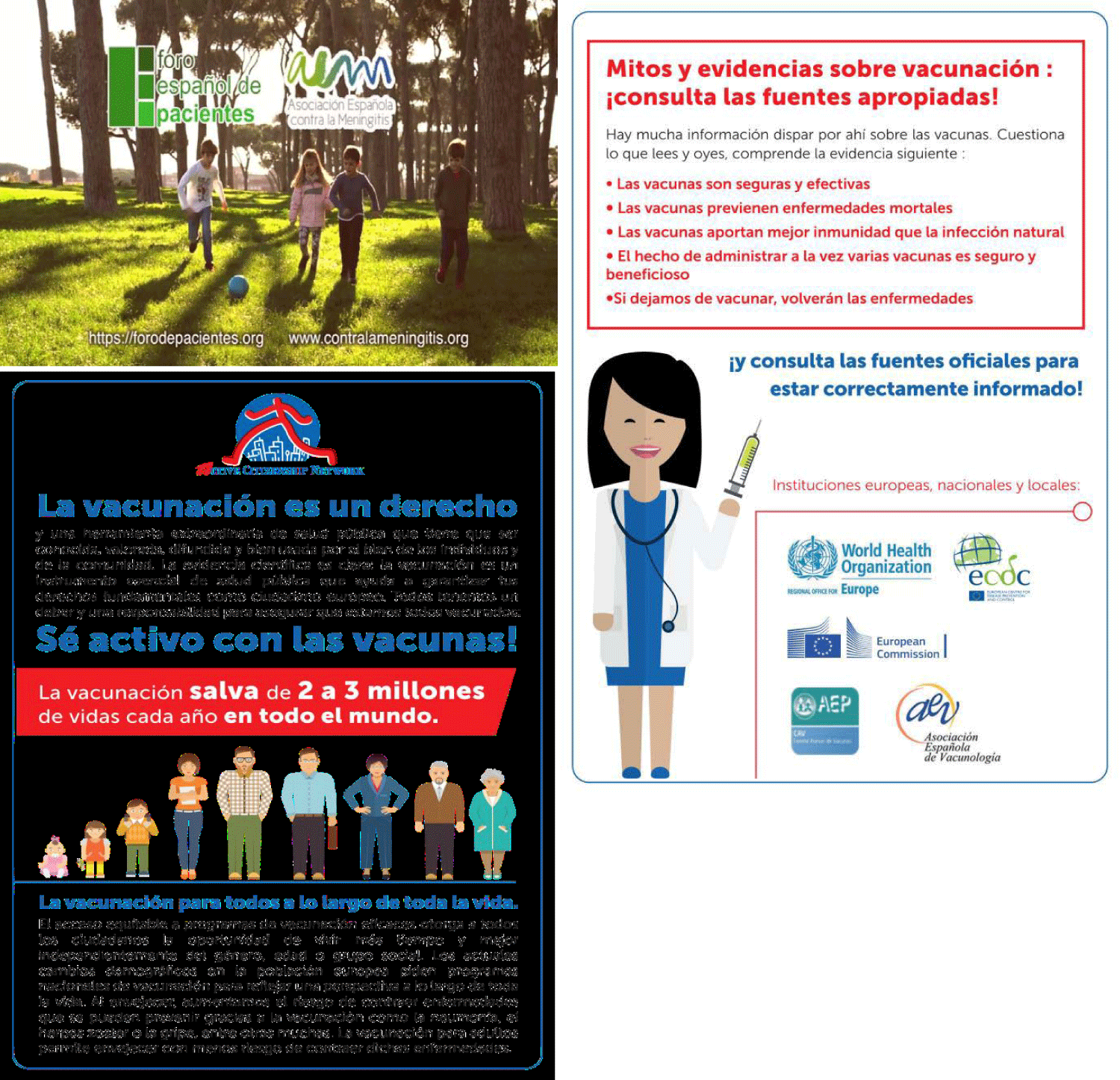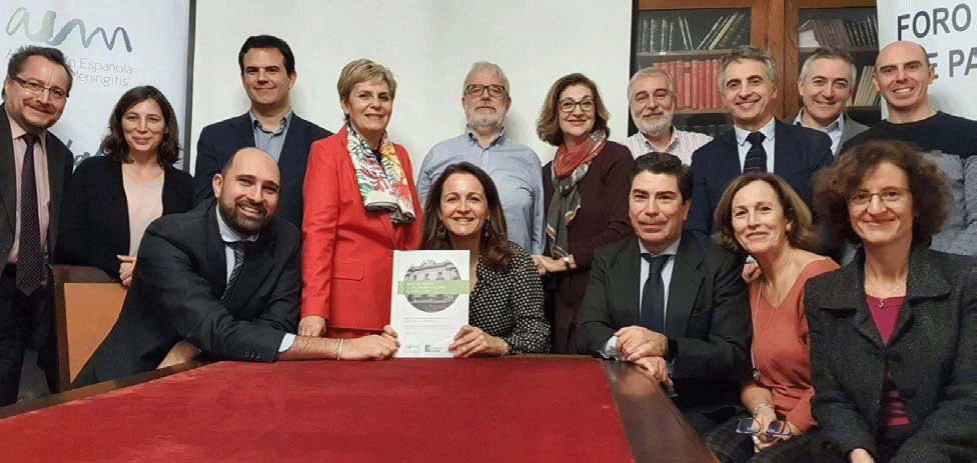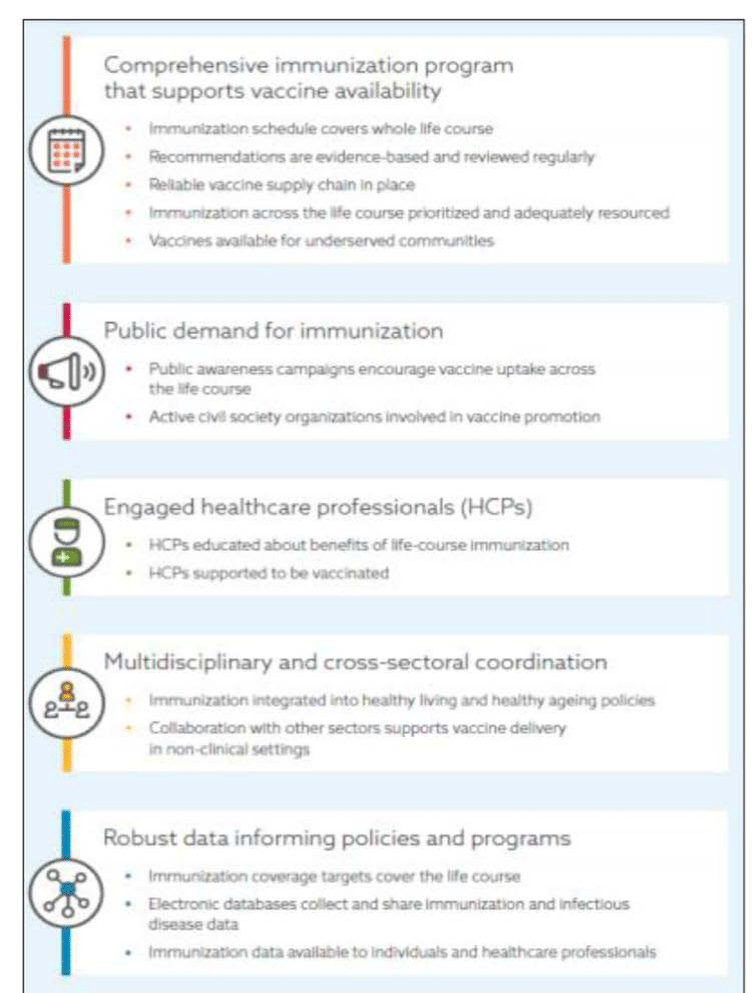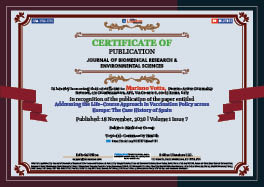> Medicine. 2020 November 18;1(7):313-319. doi: 10.37871/jbres1161.
-
Subject area(s):
- Community Health
Addressing the Life-Course Approach in Vaccination Policy across Europe: The Case History of Spain
Mariano Votta*, Daniela Quaggia, Giulia Decarolis, Elena Moya, Josè Luis Baquero Ubeda and Maira Cardillo
2Senior Project Manager at Active Citizenship Network, c/o Cittadinazattiva APS, Via Cereate 6, 00183, Italy
3Project Assistant - European Affairs at Active Citizenship Network, Via Cereate 6, 00183 Rome, Italy
4,5Vice president of AEM
6Community & Fellowship Assistant at Active Citizenship Network, c/o Cittadinazattiva APS, Via Cereate 6, 00183 Rome, Italy
- Life course vaccination
- Immunization
- Vaccination policy
- Civic activism
- Spain
In April 2019, the Italian NGO Cittadinanzattiva, through its international branch Active Citizenship Network (ACN) launched, during the European immunization week, a new project called “European Active Citizens for Vaccination”. The aim was to improve the awareness on the importance of vaccination across Europe: The scientific evidence is clear; vaccination is an essential public health tool and helps to guarantee our fundamental rights as European citizens. ACN realized a social media communication campaign supporting and spreading awareness on the topic of life-long vaccination, videos were made in all the national languages of the involved countries (Italy, Hungary, Poland, Ireland and Spain) and then produced, shared and customized for each country. Moreover, an informative leaflet in a different language was produced. Civic consultations on the National Immunization Plan were held in Poland, Hungary and Spain. This article describes the main results of the focus group held in Spain on the topic of vaccination and on its related policies. The full report has been published in the Report entitled “European Active Citizens for Vaccination: focus on Spain (2019 - 2020)” edited by Cittadinanzattiva APS.
ACN: Active Citizenship Network
Most vaccination programmes focus on discrete life stages such as childhood, but evidence supports a life-course approach, meaning vaccination given through all phases of life.
The life-course approach to immunization recognizes the role of immunization as a strategy to prevent disease and maximize health over one’s entire life, regardless of an individual’s age. This approach requires that immunization schedules and access to vaccination respond to an individual’s stage in life. 8
A life-course approach has been advocated by the World Health Organization (WHO) as a model of healthcare provision that would benefit both individuals and healthcare systems. It involves looking at health as a continuum through life: a dynamic and interconnected process, as opposed to rigid life stages. It moves away from traditional approaches, where one develops and delivers vaccines in response to immediate threats for discrete age groups. Instead, investments in vaccination strategies should be based on their potential to strengthen the individuals’ ability to maintain a good protection against infectious agents over the course of their lives, and their impact on the prevention of other pathogens and comorbidities over time [1].
Cittadinanzattiva-Active Citizenship Network is deeply committed to contribute to raise awareness about the importance of vaccination in Italy and across Europe [2]. Our commitment has been appreciated by the European Center for Disease Prevention and Control (ECDC), the Agency of the European Union aimed at strengthening Europe’s defense against infectious diseases that, in 2016, has decided to officially include Cittadinanzattiva in the ECDC Technical Advisory Group for Increasing Vaccine Coverage. As members of this Advisory Group we feel a great responsibility to commit ourselves to this issue: we believe that the culture of a widespread vaccination is necessary, particularly to overcome the idea that we only get vaccinated when we are young and, instead, shift to a common knowledge linked to a life-course vaccination approach which prevents a series of diseases even during adulthood.
In April 2019, ACN launched, during the European immunization week, a new project called “European Active Citizens for Vaccination” [3]. The aim was to improve the awareness on the importance of vaccination across Europe: the scientific evidence is clear; vaccination is an essential public health tool and helps to guarantee our fundamental rights as European citizens.
During the implementation of the project, ACN realized two main actions
Firstly, a social media communication campaign was carried out throughout a Video that supports and spreads the core message “Together, as active and aware citizens, we can protect ourselves, become the champion of your future!”, sending a unified, clear and strong message on the importance of vaccination directly from citizens to citizens. Videos were made in all the national languages of the involved countries (Italy, Hungary, Poland, Ireland and Spain) and then shared and customized for each country. Moreover, an informative leaflet in different languages has been produced [4] (Figure 1).
Secondly, a civic evaluation of the national immunization plans was produced throughout the realization of three focus groups (in Spain, Hungary and Poland) on the specific theme of the life-course immunization approach. Thanks to the work and cooperation of our constituency of national citizens’ organizations, we brought together around the table leaders of civic and patients associations, healthcare professionals, policymakers and other stakeholders involved in each country in the administration of vaccines. The aim was to find together proposals and gather impressions, suggestions, advices and provide institutional and health care stakeholders with: the strengths/weaknesses of national policies and plans about their approach to life-course immunization approach; the common elements or specificities that affect a greater or lower success of this approach. The first countries involved were Hungary, Poland, Spain with the respective associations: Vedem Civilian for Vaccination [5], Institute of Patients’ Rights and Health Education [6], Foro Español de Pacientes [7], and the Asociación Española contra la Meningitis [8] (Figure 2).
For the success of the project, ACN established and managed a “Steering Committee”, composed of professionals, experts, and representatives of civic and patients’ associations to define the messages of the social media communication campaign and the main contents of the civic evaluation. The meeting of the Steering Committee of the project was realized in Brussels at the beginning of July 2019.
ACN worked on the creation of a questionnaire (With both closed and open questions) on the specific theme of life-course immunization approach in the national immunization plan that was handed out to each participant in order to: be used as a base of discussion during the focus group; make an exchange of information on how it is organized in that country compared with other countries; find together proposals, suggestions, advice on that aspect.
Different people were involved, such as: leaders of civic and patient’s associations, healthcare professionals, policymakers and other stakeholders implicated in the administration of vaccines. Each focus group was led by a moderator and lasted between one and a half to three hours, depending on the number of participants. The discussions were recorded in order to be better summarized. Each participant was given two sheets with the written questions that the moderator had to ask during the discussion so that they could always see them and write down their answers in a completely anonymous way. During the debate, participants were given post-its of different colours to indicate their answer to the questions on a poster in the middle of the table, from which the moderator got inspiration to guide the next discussion.
The questions were divided into two blocks, A and B: in part A, the more general, all participants were asked to answer how they evaluated the awareness and support for life- course immunization approach in their Country and among different subjects, and how much the vaccination plan in their country is designed to help maximize the individuals’ ability to protect themselves from infection over the course of their lives.
In part B, the questions regarded five key policy elements that characterized effective life-course immunization strategies (according to the IFPMA Report): Comprehensive immunization program that supports vaccine availability; Public demand for immunization; Engaged healthcare professionals; Multidisciplinary and cross-sectoral coordination; Robust data informing policies and programs (Figure 3).
The Spanish Focus Group took place in Madrid at the Royal Academy of Medicine, on the 26th November 2019. The meeting was organized by the Spanish Association against Meningitis (AEM) with the collaboration of the Spanish Patients’ Forum (FEP).
The participants were;
| Elena Moya Pendería | Vice-president of AEM |
| Dr. Jose Luis Baquero | Director and scientific coordinator of FEP |
| Dr. Pilar Campos Esteban | General Directorate of Public Health of the MSCBS |
| Dr. Aurora Limia Sánchez | General Directorate of Public Health of the MSCBS |
| Dr. Angel Gil de Miguel | Royal Academy of Medicine and Professor of Preventive Medicine at the King Juan Carlos University of Madrid |
| Dr. Mariló Las Heras Carbajo | Ministry of Health of the Community of Madrid |
| Dr. Carlos Mateos | director of ComSalud |
| Dr. Jesús Ruiz Contreras | Preventive Medicine Service of the Doce de Octubre Hospital |
| Dr. Isabel Jimeno Sanz | Madrid Health Service, SERMAS |
| Inmaculada Cuesta Esteve | National Vaccine and Nursing Association, ANENVAC |
| Santiago García Blanco | Health Council of Cantabria |
| Alejandro Cremades | Community Nursing Association |
| David Cantarero | Economy and Health, University of Cantabria |
| Javier Moreno Alemán | Legal expert in Health, LEXMOR |
| Mariano Votta | Active Citizenship Network |
The elements that emerged from the debate showed that the vaccine system in Spain is generally evaluated as good. Below are listed more specific elements.
The vaccine schedule in Spain
As endorsed by specialized Spanish and international forums, child vaccination is a success in the country with a coverage above 95%, thanks to the complete schedule and its coverage, as well as the action of both government and health professionals.
Another successful vaccination in the country is the one against pertussis in pregnant women. Actors involved were the health authorities, gynecologists, midwives and pediatricians. However, from adolescence and into adulthood, vaccination rates are lower. In any case, both in childhood, adolescence and adulthood, there are possibilities for improvement.
Equality of the vaccination schedule in Spain in the different Autonomous Communities
Because of the Autonomous Communities’ system [9], which fragments Spain in 17 different territories, inequality is something that seems inevitable. The vaccination schedule proposed by the Ministry of Health, Consumer Affairs and Social Welfare (MSCBS) to the Interterritorial Council is well-planned and based on evidence. Except for a few epidemiological reasons, it is usual for differences between the Autonomous Regions to be because of political differences and budgetary availability. Pressure from private industry also plays a part in this. In any case, there are more similarities than differences and it is necessary to tackle the feeling of inequality in the population.
Adaptations of the vaccination schedule in Spain in special cases (Travelers, Immigration, etc.)
Until 2019 it was handled independently in each Autonomous Community, but this year (2019) a joint proposal to the Interterritorial Council has been taken and agreed upon. Travelers must be controlled before departure, but also on their return. Immigration is studied on a case-by-case basis, avoiding stigmatization and, in the event of doubt and depending on the case (origin, destination, age, etc.), vaccination is recommended despite possibly having already been received it, or previous serology.
Certain cases, such as tuberculosis, currently have an ineffective vaccine such as BCG, but there is hope in the development of new vaccines with better protection rates, which probably will be able to enter the vaccination schedule in the near future. The development of new vaccines against different serotypes is also being studied for their incorporation or revaccination with an extended spectrum, such as the vaccine against Human Papillomavirus (HPV) and meningococcus (tetravalent and B).
Mandatory vaccination for children in Spain
Its compliance rate of more than 95%, which is producing the “herd effect” and which protects the unvaccinated, makes it unnecessary. It is obligatory only in the event of a public health risk or certain individual cases by court ruling.
Compulsory vaccination of health professionals in Spain
- There is a certain disparity that is difficult to understand between the campaigns and the promotion of vaccination to the general population and to that of professionals. In Spain vaccination is recommended for professionals in contact with particularly vulnerable patients but, in any case, there is the right to abstention. In 2011, the formal renunciation of this act was established, although its application is close to zero. A strong campaign from the Ministry to recommend vaccination to health professionals is suggested.
- Vaccination as a barrier to the proliferation of multi-bacterial resistance. There is clear evidence of its indirect effectiveness, especially with attenuated vaccines such as influenza, by reducing the risk of subsequent bacterial complications and the consequent reduction in the use of antibiotics. In addition, it has also been associated with lower morbidity, for example by reducing cardiac pathology. Information and training in this regard should be strengthened, both for professionals and the population.
- Certain actions by governments, such as price pressure on the producing industry, put supply at a certain risk in the medium and long term. On the other hand, the governments must be supported for actions taken to protect the population in the case of certain emergency situations, despite the fact that expectations may not have subsequently been fulfilled, since decisions in this area must be taken quickly, at an early stage and sometimes with little information (e.g. in the case of the massive purchase of type A flu vaccine, of which only 2/10 was consumed).
The main aspects that aroused were
- Health authorities, followed by patient associations and civil organizations, are the most conscious about life-course immunization.
- Childhood vaccination in Spain is a success. However, from adolescence onwards and into adulthood, the rates are lower and there is much room for improvement.
- They have a very complete and well-justified vaccination schedule, with more elements in common than differences between the Autonomous Regions. It is necessary to tackle the feeling of inequality.
- Vigilance and adaptation to the vaccination schedule is necessary in the case of travelers and immigration.
- The government is monitoring the development of new vaccines to be included in the vaccination schedule, once they are endorsed for their effectiveness and safety.
- Obligatory vaccines are not considered necessary for children, and not adequate for professionals; information, training, awareness and incentives of professionals are more important. It is recommended to open channels of communication from the Ministry to the councils, nursing associations and young people. These three communication channels would reach the majority of the population.
- The role of vaccination against the spread of bacterial multi-resistance is scientifically proven and information and training in this sense must be strengthened, both for professionals and the population.
- The pressure on the price of vaccines puts the supply at some risk, in the medium and long term.
- The actions during epidemiological emergencies, although taken by experts, usually need to be quick, which leaves many doubts, although this must excuse calculation errors.
- Information Technology (IT) support in Spain is not bad, but it is uneven and ineffective for universal analysis; improving it should be a national priority.
- The development of therapeutic vaccines is very promising, but personalization is supposed to involve high costs.
It is widely felt that the vaccination plan in Spain is designed to help maximize people’s ability to protect themselves from infection throughout their lives, with the immunization schedule being considered either well-developed or in development, in equal parts. On the other hand, public campaigns, the involvement of civil and patient organizations, the education and support of professionals, the integration of immunization into aging policies, the administration of vaccines in non-clinical settings, vaccination coverage by age, and the availability of data are still all in development. The importance of patient associations is underlined as a strong asset for improving adult vaccination. The use of emotional arguments through personal stories is also suggested.
The experience and the main outputs of the project suggest how relevant it is, in the field of vaccination, to develop a policy on lifelong vaccinations rather than only focus on mandatory child vaccinations. The initiative testifies the positive role played by health professionals as well as private and public actors involved in the policy making. Despite their tendency to criticize the failures and weaknesses existing within the system, they have demonstrated their contribution by giving plenty of advice and suggestions on how to improve the actual vaccination system in Spain.
Moreover, the project shows that the role of these focus groups is that of identifying not only emerging problems, but also possible solutions to denounce what doesn’t work properly and to appreciate what proves to be successful. As for us, we have been committed to this topic and we will work hard to reinforce vaccination policies all around Europe.
This initiative, in Spain, was possible thanks to Foro Español de Pacientes and Asociación Española contra la Meningitis.
The EU project “European Active Citizens for Vaccination 2019” has been realized thanks to the support of MSD.
- Implementing a Life-Course Approach to Immunization. IFPMA. 2019. https://bit.ly/339fUjd
- Active Citizenship. The engagement of Cittadinanzattiva on vaccination. https://bit.ly/3nwWOLA
- Active Citizenship. European active citizens for vaccination. 2019. https://bit.ly/2UATNgE
- Active Citizenship Network. All the materials. 2019. https://bit.ly/35BduLy
- Hungarian Association Vèdem. 2020. https://bit.ly/3f8cQbD
- Polish Association. 2020. https://bit.ly/3f5wsNu
- Spanish Association. https://bit.ly/35B7P8s
- Spanish Association against Meningitis. https://bit.ly/3nwYdSm
- To know more about the Autonomous Communities system. https://bit.ly/32S1OCw
Content Alerts
SignUp to our
Content alerts.
 This work is licensed under a Creative Commons Attribution 4.0 International License.
This work is licensed under a Creative Commons Attribution 4.0 International License.






